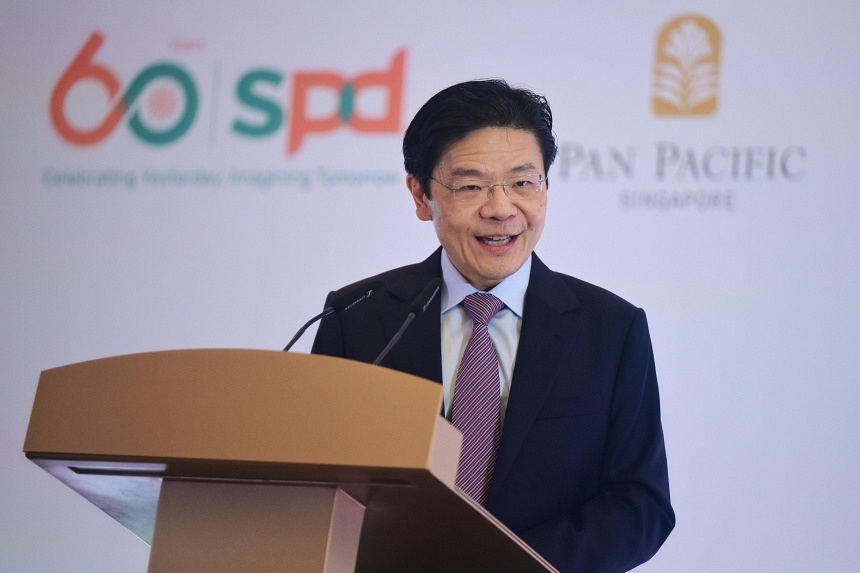SINGAPORE – After graduating from special education (Sped) schools at 18, people with disabilities sometimes find it difficult to secure a job even though they want to work.
That is why the Government is looking at how to help them make a smoother transition to the workforce, and for those who want to continue their education to do so, said Prime Minister Lawrence Wong on Oct 28.
The authorities are also studying how to provide more help for their caregivers, amid shrinking family sizes and an ageing population, he added.
Speaking at a dinner to mark the 60th anniversary of disability charity SPD, PM Wong said more needs to be done to help those with disabilities realise their full potential and lead independent lives, even as Singapore has achieved much in building a more inclusive society.
Smaller families than in the past means fewer people to share the burden of care, while the ageing population means caregivers have to prepare for changing needs as they and their loved ones with disabilities grow older, he added.
“That’s why we are studying how we can give more help to caregivers and persons with disabilities, to enable them to plan for their needs, goals and aspirations, and to update these plans as their life stages and family circumstances change,” he said at the event at Pan Pacific hotel.
“We are also looking at ways to enhance and extend the range of support to enable persons with disabilities to continue to live independently in the community.”
PM Wong also elaborated on the work being done on other fronts to better support those with disabilities, such as in early intervention, and with Sped educators, employers and parents.
For instance, the number of spots in government-funded early intervention programmes is being raised to provide timely intervention to more children, while more opportunities are being created to deepen the professional skills and capabilities of Sped educators.
Efforts to support inclusive hiring by employers through grants and recognition have raised the employment rate of persons with disabilities from about 28 per cent five years ago to 33 per cent today, noted PM Wong.
Meanwhile, a pilot was launched recently to raise the skills and knowledge of parents of two- and three-year-olds with developmental needs, he added.
Singapore is aiming to raise the employment rate of people with disabilities from 30 per cent to 40 per cent by 2030, and a taskforce looking at ways to reach this goal announced its recommendations in a report on Sept 16.
Among its recommendations are for such people to tap gig work as a stepping stone to joining the workforce, and to expand the pool of inclusive employers in sectors such as retail trade, information and communications, as well as transport and storage.
It also recommended having up to 250 individuals join a pilot known as the Enabled Living Programme from 2025 to 2028, where they will live in a cluster of Housing Board rental flats or be supported in their own homes.
These adults with disabilities will receive support to live independently in the community, alongside coaching in social skills, care support for daily living activities and on-site monitoring.

